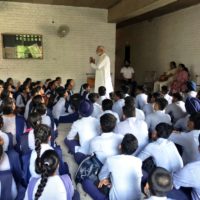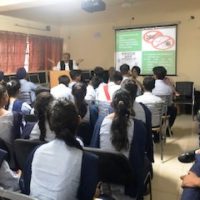DRUG ABUSE REPORT
UNDERSTANDING DRUG ABUSE
Whenever someone takes a drug for reasons other than its intended use, it is considered substance abuse.
Adolescence is a time for experimentation for many youngsters, and this can lead them to engage in risky behaviors. Binge drinking, prescription drug abuse, and recreational drug use are all common problems on school and college campuses.
Teenage Drug Abuse and Addiction
Teens who abuse drugs may have a greater risk of developing an addiction when they are adults.It’s important to know the difference between drug abuse and addiction. Many teens experiment with drugs, but aren’t addicted.
Teen drug abuse can have long-term cognitive and behavioral effects since the teenage brain is still developing.Recognition and prevention of drug use can end an emerging problem before it starts. Setting a good example and having talks about drug use are strong tools for teenage substance abuse prevention.
Teen Drug Experimentation
Half of all new drug users are under the age of 18. Experimentation plays the biggest role in teenage drug use. However, experimentation is a fact of life and just because a teen has tried drugs or alcohol doesn’t mean they will become an addict. It’s more important to understand why some teens are tempted to experiment.
Common reasons teens abuse drugs include:
- Curiosity
- Peer pressure
- Stress
- Emotional struggles
- A desire to escape
The majority of adults with an addiction first experimented with drugs before they turned 21. The good news is that the rates of teenage drug abuse have been declining. If you think your teen is using drugs, there are teen addiction treatment options available.
Signs of Teen Drug Abuse
There are many signs that a teen is using drugs. It can be difficult to tell the difference between the pangs of adolescence and actual drug use, but parents can be proactive in talking to their teen to find out what’s going on.
Some common signs of teen drug abuse include:
- Bad grades
- Bloodshot eyes
- Laughing for no reason
- Loss of interest in activities
- Poor hygiene
- Diminished personal appearance
- Avoiding eye contact
- Frequent hunger or “munchies”
- Smell of smoke on breath or clothes
- Secretive behavior
- Unusual tiredness
- Missing curfew
It’s up to parents to initiate a conversation with their children if they suspect drug use. One in five parents who suspect their teen is using drugs do not intervene to prevent further drug use.
The best way to get a teen to communicate about their drug use is by asking compassionate and understanding questions.
Parents can ask straightforward questions when said in the right tone. Simply asking, “Have you been using drugs or alcohol?” or “Has anyone offered you drugs recently?” can be enough to get the conversation started.
Responding to a teen’s admittance or denial of drug use in the right away is just as important as asking the right questions.
Activities Done in School Regarding Awareness Towards Drug Abuse Are As Followings with Photographs:
- Seminars
- Group Decisions Sessions
- Rallies
- Theater Acts
- Nukkar Natak
- Poster Making Competitions
- Slogan Writing Competitions


